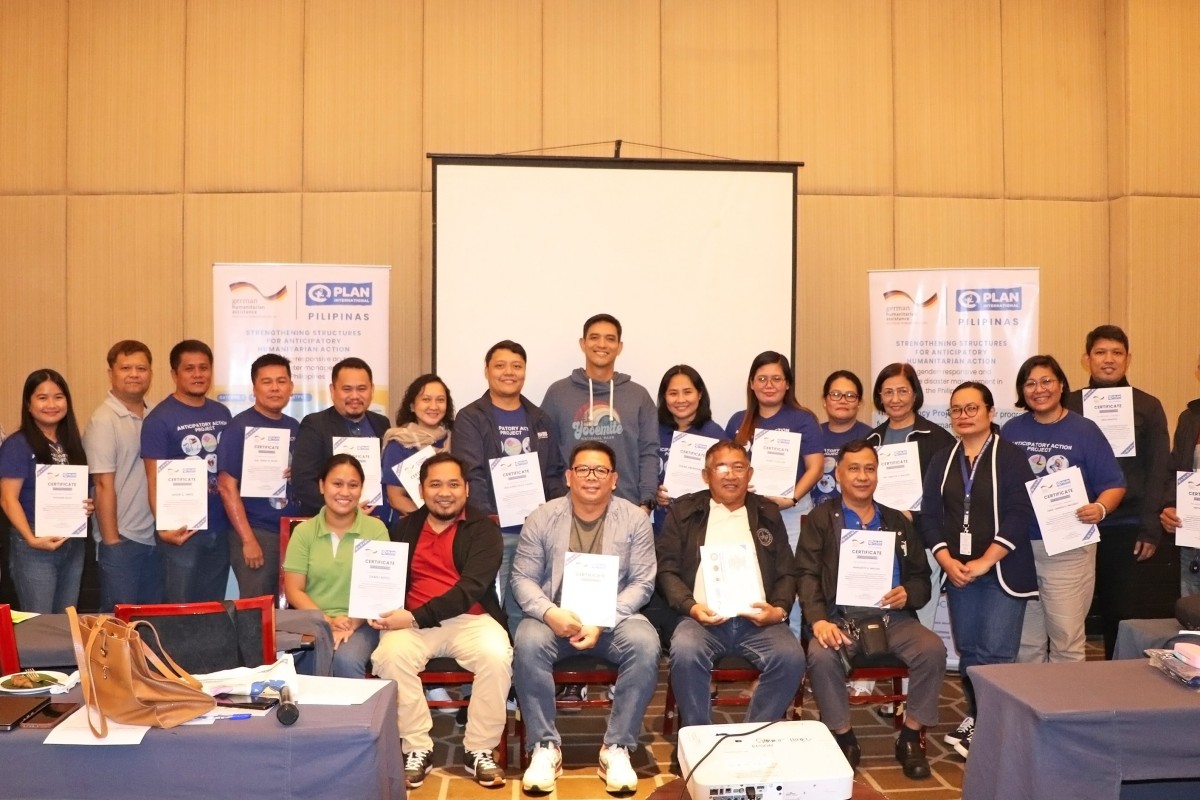TACLOBAN CITY (PIA) — The local disaster risk reduction and management councils in the province of Eastern Samar have pledged to intensify disaster preparedness measures following the approval of a 3-year resiliency project in the municipalities of Llorente and Salcedo.
The project aims to improve anticipatory action systems and disaster management contingency plans to lessen the calamity hazards in the community.
The German Federal Foreign Office funded the project, which is being carried out in collaboration with Plan International Pilipinas.


Llorente and Salcedo municipalities in Eastern Samar are among the beneficiaries of the pilot project launched on February 8. These areas were selected due to their vulnerability to the calamities they face in the Pacific Ocean.
Melchor L. Mergal, the chairperson of the Provincial Disaster Risk and Reduction Management and Climate Change Adaptation, shared their pledge of commitment and support for the project.
“Maganda po yung proyekto dahil ito po ay isang sagot doon sa maayos na pag-prepare at response kung mayroong disaster or bagyo. Committed kami na from start to finish ng project na ito ay magtutulungan kami para ma implement ng maayos at magkaroon ng kabuluhan yung aming partnership para hindi lang sa Eastern Samar ma shared kundi throughout the Philippines,” Mergal said.
[The project is great because it serves as a response to proper preparation and response in case of disasters or typhoons. From the start to finish of this project, we are committed to collaborating and implementing it properly, making our partnership meaningful not just in Eastern Samar but throughout the Philippines.]
Chrisnobel Cruz, the portfolio manager of Plan International Pilipinas on Disaster Risk Management, Resilience Building, and Climate Change Adaptation (Resilience), mentioned that they want these local government units to be prepared and take action to mitigate the effects of disasters before they happen.
He said that this could be achieved through an increase in knowledge of hazard risks, early warning systems, anticipatory action, and implementation of community-based actions for reducing the impact of disasters.
“May mga preliminary works pa kaming ginawa, halimbawa yung pakikipag-usap sa communities, pag ga-gather ng mga secondary information; bago namin nabuo itong konseptong talaga ng anticipatory action at part ng pagsisimula yung ipakita itong ating mga initial assessment sa mga LGUs or communities upang sila mismo ay makita nila kung anu ba ang kanilag gagawin sa susunod na taon. May sinimulan kami na baseline assessment ng kanilang structures and capacities at hopefully sa susunod na dalawa or tatlong taon ito ang ating palalakasin yung areas of improvement na na-indentify natin,” Cruz provided clarity on why the project was launched this month, even though it had started back in August 2023.
[We have conducted some preliminary work, including engaging with communities and gathering secondary information. Before crafting the concept of anticipatory action, we showed our initial assessment to LGUs or communities so they could see what they would do next year. We have also begun a baseline assessment of their structures and capacities. Hopefully, in the next two or three years, we will strengthen the areas of improvement we have identified.]
Plan International Pilipinas plans to expand this project to other vulnerable areas of Eastern Visayas. Their initial goal will be to establish proof of concept to determine the project's feasibility. Once they have sufficient evidence, they will use it to attract potential donors or funders for the project.
After the project launched, they have already planned activities for the communities, including information dissemination, raising awareness, training, and national-level advocacy to create a policy that will aid in implementing the project in the local government units. (LDL/AAC/PIA Leyte)



